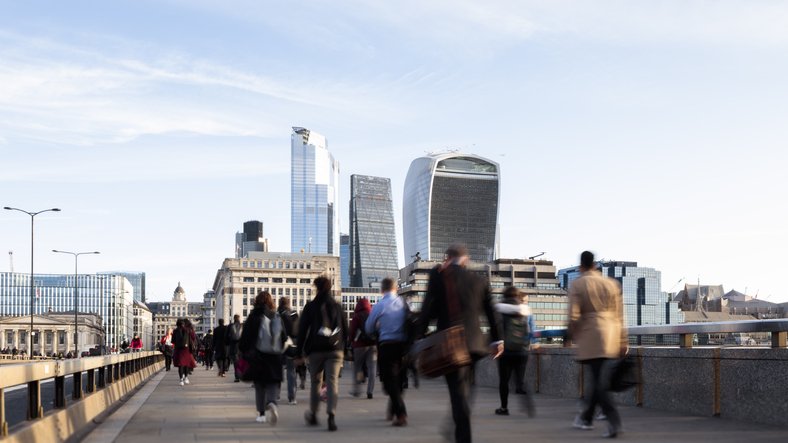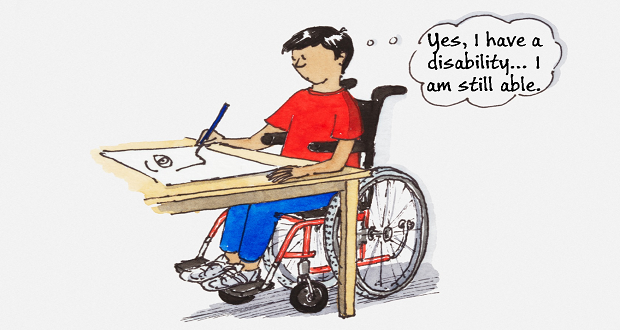
As we continue to face the push to return to “business as usual” — which has been felt with urgency and heaviness since the onset of the pandemic — it feels as healthy a time as ever to consider what business usually is. Within the United States, business typically operates within a capitalistic pedagogy, riddled with hierarchy, competition, exploitation, inequity, and a profit-over-everything mentality. And as Nikole Hannah-Jones expresses on the NPR Throughline podcast episode on the country we have, capitalism has roots in the enslavement of Black people and the exploitation of their bodies and labor, dating all the way back to 1619.
This long history of exploitation, violence, and disregard for human life and human rights has resulted in a system that benefits a specific group of people — namely white cis hetero men who own land/capital — while marginalizing, killing, and oppressing many other communities that disproportionally fall into the intersectional categories of LGBTQ+ people, Black people, Indigenous people, people of color, poor people, disabled people, incarcerated people, neurodiverse/neuro-queer people, and people who are psychiatrically labelled. This is the legacy upon which business in the U.S. is situated.
The very reasons why efforts toward diversity, equity, and inclusion (DEI) are necessary are best understood through the dark beginnings of racial capitalism rooted in settler colonialism and genocide. Policies, laws, and societal norms have shaped who works, where they work, what they do, and for how much. In fact, the existence of capitalism as our reigning economic system forces people to sell their bodies, time, and labor in exchange for the ability to meet their basic human needs, without consent.
Reasons why DEI is necessary are best understood through the beginnings of racial capitalism rooted in colonialism and genocide. Policies and norms shaped who works, where they work, what they do, and for how much. Click To TweetWith so little autonomy for workers to control the conditions of their labor and enjoy the fruits of their efforts, can business be apolitical?
Who gets to define what is political? Who defines what is apolitical/neutral? Who does this benefit? Who does this harm?
When we begin to think about what it means for something to be political, it is hard not to think about what it means, on the other hand, for something to be considered apolitical/neutral. If “business as usual” is considered apolitical/neutral and is rooted in global capitalism and a culture of white supremacy, who does that benefit? Who does it harm? Or, as stated by Elastic Chief Information Security Officer Mandy Andress in TechCrunch: “When we consider who gets to define what’s political or not, we need to think hard about the level of privilege they enjoy — and whom they might be excluding from everyday workplace conversations.” If we reframe how we think about the power dynamic within defining apolitical/political, we can see how certain ideas, people, identities, and more have been politicized and therefore made “political.”
When so-called neutrality benefits the oppressor/system of oppression, being loudly “political” becomes a necessity.
Certain ideas, people, identities, and more have been made 'political.' When so-called neutrality benefits the oppressor/system of oppression, being loudly 'political' becomes a necessity. Click To TweetWhat stake do businesses hold in maintaining “business as usual?” And how does the construct of whiteness play a role?
Businesses are made up of people. Historically, the people who are making the decisions about business are the ones who hold the power and the wealth, which oftentimes means white men. What is in the best interest of the construct of whiteness in a racial capitalist system?
Answer: Upholding norms that allow for labor and resources to be exploited. For example, supporting legislation and policies that deny people their human rights and bodily autonomy, or categorize people by race, sex, gender, sexual orientation, age, class, and as separate from the natural world. Doing this while accumulating as much profit as possible, no matter how it impacts human and non-human nature alike.
In order for those with power to uphold the status quo as the norm, they politicize any disruption to it. Politicization of identity and expression, of basic human rights, of equity, and of standing up in the face of injustice has fundamentally intertwined the personal with the political.
For those with power to uphold the status quo, they politicize any disruption to it. Politicization of identity, expression, basic human rights, and equity has fundamentally intertwined the personal with the political. Click To TweetIn a recent video about Critical Race Theory (CRT), Sonya Renee Taylor expresses that the people who are leading the attack on CRT know that there are two options: Either the upholding of
“the status quo of whiteness as default, aka whiteness as dominance, aka white supremacist delusion, as the foundational premise upon which America gets to be situated, or they understand the option is [the] dismantling of whiteness as it has been constructed.”
If the truth leads to collapse of “business as usual” — which is interconnected with the construct of whiteness through a capitalist system that has historical roots in colonialism and genocide — then it makes sense that so many business execs will do everything in their power to call on businesses to be apolitical, despite where they invest their money.
If the truth leads to collapse of 'business as usual,' interconnected with colonialism and genocide, it makes sense that business execs will call on businesses to be apolitical, despite where they invest their money. Click To TweetAndress also states: “Managers and executives who insist on an apolitical workplace are inevitably asking some employees, particularly those belonging to historically underrepresented groups, to stay in the shadows, to keep quiet about who they are.” Therefore, when people who hold power create norms, policies, and laws, they are creating environments that are not equitably safe for all people — in turn, creating the environments that require DEI efforts to disrupt. When people impacted most by these decisions, policies, and laws are not part of the conversation, they are stripped of their humanity and autonomy.
When people who hold power create norms, policies, and laws, they create environments that are not safe for all people. When people impacted most are not part of this conversation, they are stripped of their humanity. Click To TweetThis is why the personal is political.
When our identities have been politicized, when our basic human rights and needs have been in question, when our autonomy and consent have been denied, it becomes nearly impossible to operate both in an authentic and “apolitical” way. Through this lens, Andress poses the question:
When our identities have been politicized, when our basic human rights have been in question, when our autonomy and consent have been denied, it becomes impossible to operate both in an authentic and 'apolitical' way. Click To Tweet
This is not an uncalled-for question when there have been teachers fired for openly discussing and supporting LGBTQ+ realities. And, despite the Supreme Court’s 2020 ruling that it is unlawful for someone to be fired for their gender or sexual orientation, full protection still depends on where you work.
As such, businesses’ commitments to DEI must include getting “political” and embracing alternatives to capitalist business models. In order for us to achieve what DEI efforts strive to disrupt, we must redefine what political and apolitical mean, and organize to use our power, privilege, and positionality to disrupt the status quo and take action to divest from capitalism.
Businesses’ commitments to DEI must include getting 'political' and embracing alternatives to capitalist business models. For us to achieve what DEI efforts strive to disrupt, we must redefine what political and apolitical mean. Click To TweetIn humanizing the workplace, we must commit to listening to our employees and making their personal our political. The louder the business world stands against injustice of all kinds, the closer we will come to true DEI and justice in the workplace and beyond.
In humanizing the workplace, we must commit to listening to our employees and making their personal our political. The louder the business world stands against injustice, the closer we come to true DEI and justice. Click To Tweet


















If one is a leader/practitioner within the DEI space, this article may read like the alphabet. But as a black man of 58 who has spent his adult working life as a chameleon in corporate America, the article offers context to the “why” of consistently toxic (overtly or otherwise) work environments and resulting lived work experiences. Thank you Hannah.